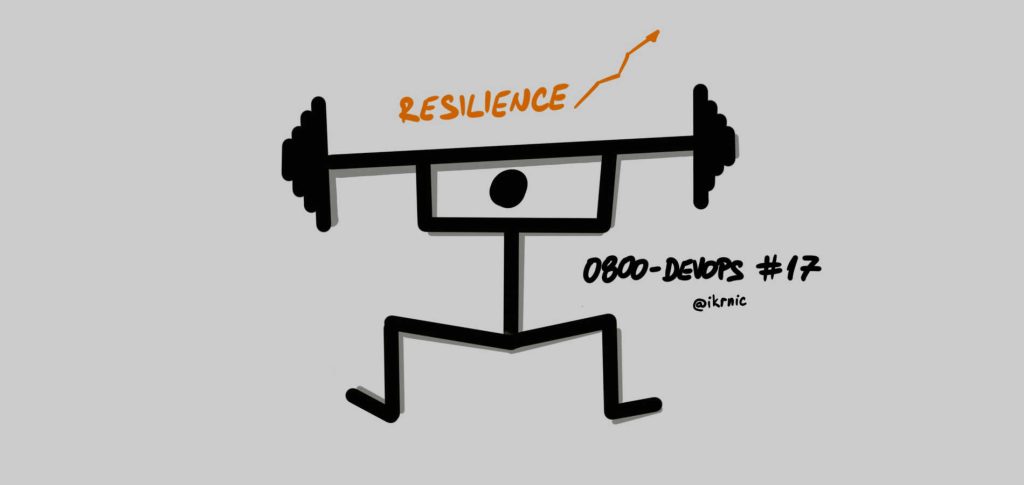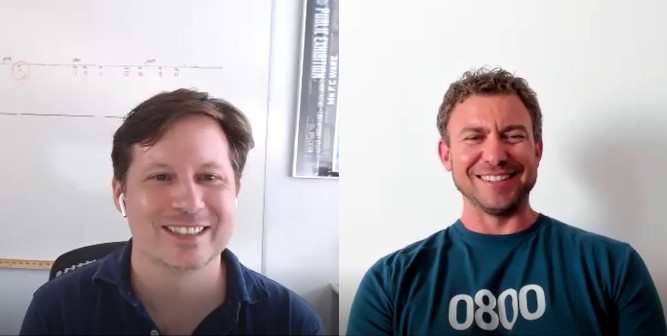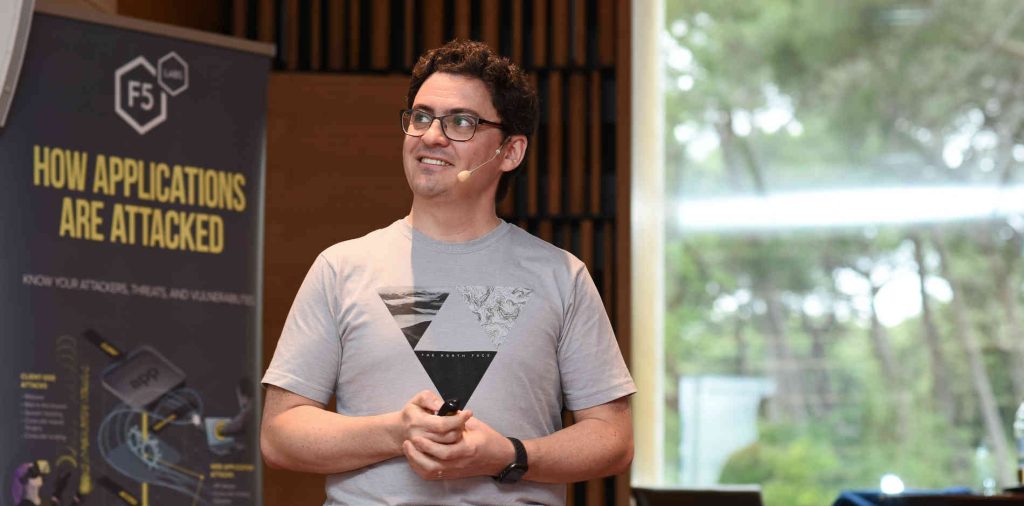Last month I had an opportunity to be part of DevOps Enterprise Summit 2020 conference. Although traveling to London would have been much better, being part of this conference even virtually was a great experience.
Organizers, led by Gene Kim (an award-winning author of several DevOps books). did an excellent job of combining prerecorded talks and live networking with speakers via Slack channels. Furthermore, there was also an opportunity to have a group Zoom session with speakers.
DOES talks are usually publicly available after some time. Till then, let me share some highlights.
Fernando Cornago, VP, Platform Engineering, Adidas talked about their DevOps journey. Adidas did a great job creating an environment where DevOps culture could thrive. They even renamed their IT to Technology to break away from the old cost center connotation and further establish a profit center, value stream mindset. I like this move because words do matter. Mik Kersten helped them a lot in their value stream transformation and they borrowed some ideas from Team Topologies, especially while considering cognitive load when forming a new team.
The platform team is super important in Adidas. Their mantra is to automate stuff as much as possible. Roughly half of their time is spent working on a platform, while the other half goes to consulting platform users. One thing I loved is assigning their employees a “008 Licence to Automate” If something can be automated, you are pre-approved to do it.
And not to forget: Adidas is a huge GitOps fan!
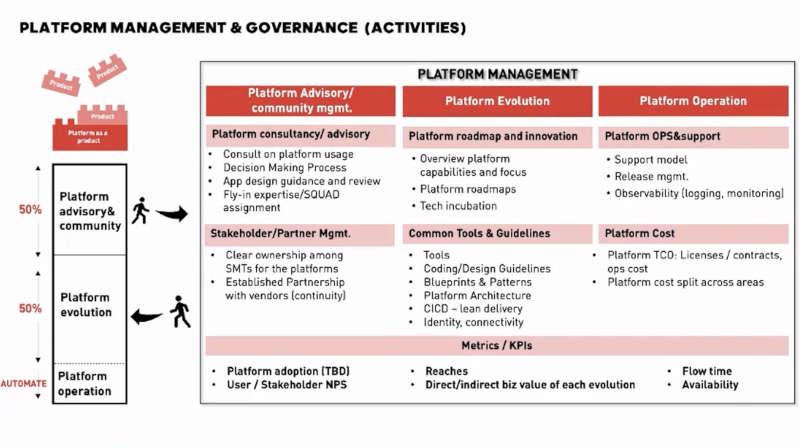
Platform team at Adidas
Jeffrey Fredrick and Douglas Squirrel, authors of Agile Conversations had a nice talk about what we can do to foster Generative culture. Authors suggest changing your conversations to change how people behave and ultimately change the culture. The conversations that we want to have are more honest, transparent, and full of genuine (and not leading) questions. We can get to such conversations by doing a sort of retrospective through 4 steps: Record, Reflect, Revise, and Roleplay. for more details take a look at the book Agile Conversations.
John Allspaw, founder of Adaptive Capacity Labs and one of the people that drove DevOps movement from its beginnings, talked about the importance of incident analysis in a learning organization. His observations on how technology leaders and practitioners behave in an organization, particularly in terms of incidents, are so true that it hurts a little. He also gave some actionable suggestions for improving our incident analysis practice. I talked with John about incident management, learning organizations, and how the world has changed since 2009. and his famous “10+ deploys per day at Flickr”. What can I say, a cherry on top of my vacation, check out our conversation here.
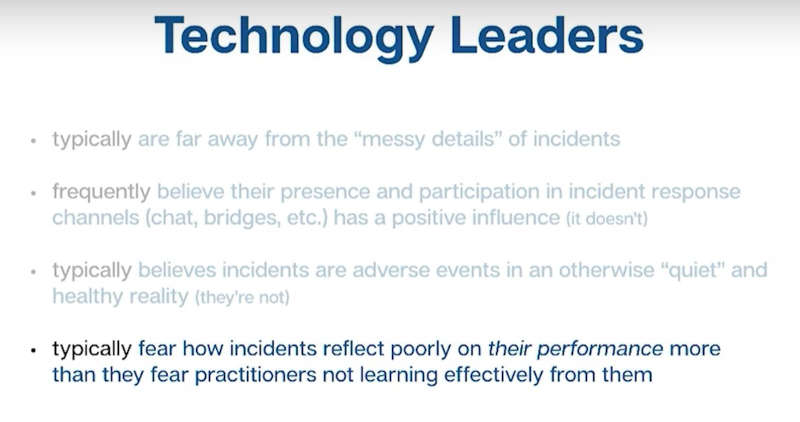
Technology leaders in organizations
John Cutler, Product Evangelist from Amplitude talked about what does it mean to be product-led. TL;DR it doesn’t mean that Product Managers run the show, it means believing in the power of design and technology, in the power of cross-functional teams, and connecting to the real human users. And as you can see, even internal platforms tick all the boxes here.
I also like what John said about “using design and technology to create an asymmetric outcome”…very powerful definition of being product-led.
Organizations should make use of feedback loops and learn as fast as they ship, and ship as fast as they learn. Just as Allspaw, Cutler reminds us that we should all be learning organizations. Shipping without learning (and vice versa) doesn’t work in the long run. We need both, we need it synchronized, and in shortest possible cycles.
I also liked the opportunity to network with the speakers. Mik Kersten talked about moving from project to product mindset and the importance of looking at your organization as a value stream network.
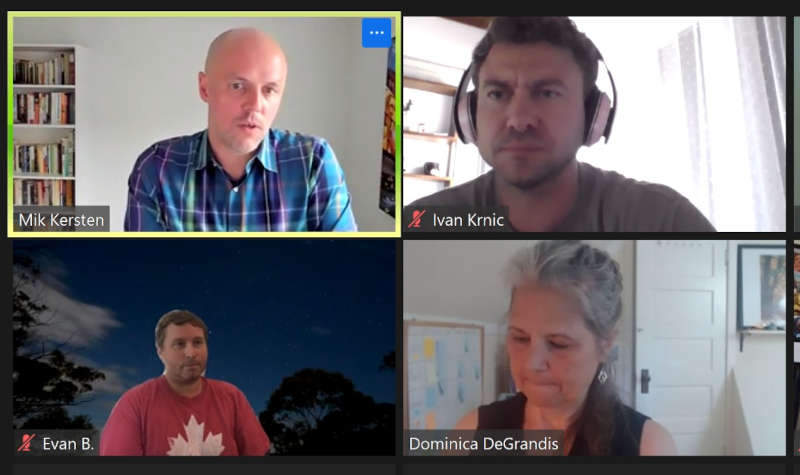
Networking with Mik Kersten and Dominica DeGrandis
Since most of the talks were delivered from a product-oriented organization’s point of view, I had a chat later with John Cutler about what constitutes a product for a service-oriented organization. This topic deserves more time and beer. Naturally, we didn’t come to a definite conclusion but we converged to the product being a skillful and knowledgeable team capable of helping customers produce their value. While it is a broad and vague definition, it did help me focus my thoughts in the right direction.

On products in service-oriented organizations with John Cutler
Due to popular demand: in case you were wondering, the headphones belong to my daughter
Falls Sie Fragen haben, sind wir nur einen Klick entfernt.
